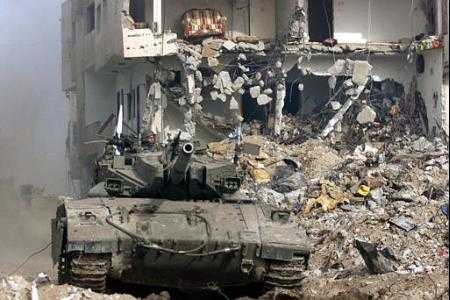Israeli Supreme Court Rules to Turn Big Mosque in Beer el-Sabe into an "Islamic Museum"
(Beer el-Sabe, Israel) On 22 June 2011, the Supreme Court of Israel issued a 40-page ruling on a petition filed by Adalah in August 2002 in which it demanded that the Big Mosque in the Old City of Beer el-Sabe (Beer Sheva) be re-opened for prayer for the thousands of Muslim residents of the city and neighboring towns and villages.
After almost 10 years of deliberations, the court rejected the Municipality's position that the mosque should be used as a general museum. Rather, the court ruled that the Ottoman-era building be opened as a museum of "Islamic culture". The petitioners - Adalah, the Association for the Support and Protection of the Rights of the Bedouin in Israel, the Islamic Committee in the Naqab (Negev), and 23 Arab citizens of Israel from Beer el-Sabe. - asked the court that the mosque to be re-opened to Muslim worshippers. The court further ruled that the petitioners had to approach the planning authorities to request that a change to be made to the purpose of the building from that of a "general museum" to a place of worship. If such a request were then rejected, they have the right to resort to the courts again.
In his ruling, Justice Salim Jubran strongly criticized the Beer el-Sabe Municipality's position that merely opening the mosque for prayer would lead to violence and disturb the peace. He wrote, "It is difficult to understand the position of the municipality that using the building for worship would harm public order." He asked whether the municipality argued that religious ritual by their very nature led to fighting and conflict, or whether it claimed that it was specifically Muslim worship that involved something that could result in confrontations between groups that would otherwise enjoy normal relations with one another.
Justice Jubran also criticized the municipality's insistence on converting the mosque into a general museum. He stated that the municipality's decision ignored the history of the mosque, its design and cultural and religious importance for the Muslim community, adding that, "In my opinion, many of the arguments put forward by the municipality should not have been made at all. These arguments create bad feeling in terms of the Municipality of Beer el-Sabe and the state's view of the Muslim community living among us."
In her ruling, Justice Ayala Procaccia noted that the Municipality had not only to deal with the practical considerations of planning and construction, but also to take account of all relevant considerations, including principle and moral considerations, social and economic interests and issues of human rights. Justice Procaccia added that, "Concerning the stated moral considerations, I doubt that the municipality has given any consideration whatsoever to the legitimate expectations of Muslims to restore their religious connection to the mosque."
Justice Procaccia described the decision to convert the mosque into a museum of Islamic culture and religion instead of turning it into a general museum as "scant" given the requests made in the petition. She added that such a step would "achieve the objectives of the petition, if partially, by restoring the link between the Muslim community and the Big Mosque, as a site that is connected to the cultural values and history of this community."
Writing the minority opinion, Justice Miriam Naor stated that the majority's decision was wrong as it granted a remedy that was not requested by the petitioners and that the respondents were not given an opportunity to respond. She further opined that the respondents' position was reasonable and proportionate, and that turning the mosque into a general museum for all religions and ethnic groups was likely to strengthen multiculturalism and coexistence rather than disrupting it.
In response to the ruling, former Adalah Attorney Adel Badeer stated that the Supreme Court could have gone a step and ordered the municipality to re-open the mosque for prayer. However, he stated, the Supreme Court's decision has prevented further deterioration in the mosque's condition and in relations between Arab residents of the city and the authorities. He added, "We intend to continue to work before the planning authorities to demand that the purpose of the building is changed from a museum to a mosque open for prayer."
The Big Mosque was built in 1906 to serve as a place of worship for the Muslim residents of and visitors to Beer el-Sabe and for the Arab Bedouin in the Naqab. Arab Bedouin sheikhs contributed half of the funding for the construction of the mosque. From 1906-1948, the building served as a mosque; after the establishment of the state of Israel in 1948, the mosque was used as a court and prison until 1953. Thereafter, it was used as a museum until 1991, and then closed and all of the museum's exhibits were removed. Since then, the mosque has laid deserted, neglected and unprotected. Muslims have been prevented from praying in the mosque, despite many requests by religious leaders to be permitted to renovate it and pray in it.
Former Adalah Attorney Morad el-Sana file submitted the petition in 2002, and later, Adel Badeer continued the representation of the petitioners.
Case citation: HCJ 7311/02, The Association for Support and Defense of Bedouin Rights in Israel, et al. v. The Municipality of Beer Sheva, et al. (decision delivered 22 June 2011)
See coverage in Ha'aretz:
http://www.haaretz.com/news/national/high-court-rules-be-er-sheva-mosque-to-be-used-as-islamic-museum-1.369278
Ynet English: http://www.ynetnews.com/articles/0,7340,L-4086545,00.html

















